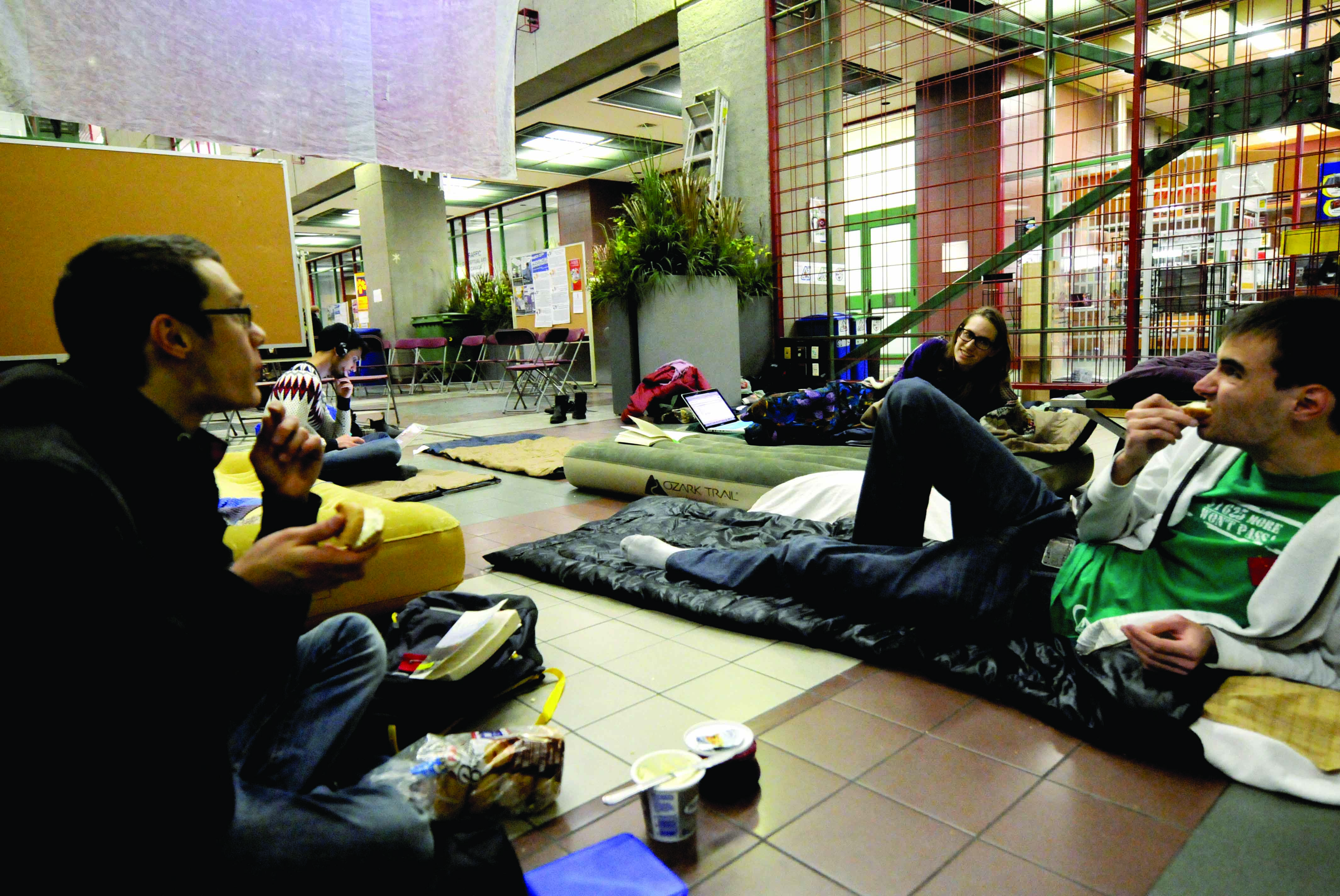Roughly 40 people have set up camp in the J.W. McConnell Library Building to take part in the week-long event organized by the Concordia Student Union. Students plan on staying overnight in the building’s first floor atrium until Friday. By day, the CSU is using the space to hold workshops geared towards social activism.
“We pay to have our library open for 24 hours so we might as well take advantage of that,” said CSU VP external and event organizer Chad Walcott.
He said that the sleep-in was purposely timed to coincide with midterms to attract interest for their cause from the increased number of students circulating through the library.
The sleep-in doubles as an information campaign about university tuition hikes leading up to next week’s strike vote. On March 7, Concordia undergrads will vote on whether to join the more than 55,000 other post-secondary students already on unlimited strike in Quebec.
While the daytime activities are open to everyone, a Concordia ID card is required to sign up and spend the night. The university is accommodating the sleep-in, posting a press release alerting people to the protest on the Concordia Now website.
The university contacted the CSU about the sleep-in last week, according to Walcott. He said the occupation would have happened with or without the administration’s permission.
University spokesperson Chris Mota said their goal is to allow the sleep-in to take place as “safely and unobtrusively as possible.” Occupiers will have access to electricity and security will be present both during the day and overnight. Mota said that should any trouble arise, student leaders will be contacted to deal with the situation directly.
Walcott maintains that the protesters are “all adults who can govern themselves accordingly” and that people will respect the fact that they are in a library. Occupiers held a general assembly on Monday to set up ground rules for the following days.
